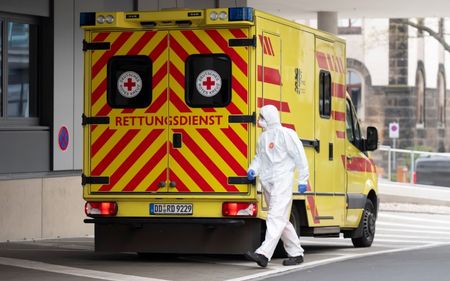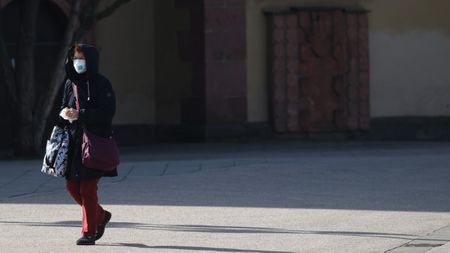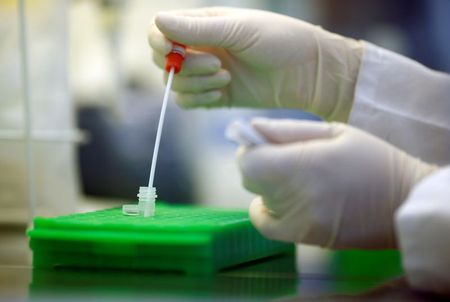BERLIN (Reuters) – Germany has proposed using big data and location tracking to isolate people with coronavirus once social distancing measures now in force have slowed its spread, media reported on Friday.
The Interior Ministry’s strategy paper recommends following South Korea in aggressively testing for COVID-19 and using smartphone location data to help trace people who have come into contact with those infected with the flu-like disease.
These measures would be critical to prevent renewed flare-ups once measures now in force – such as school closures and restrictions on movement – succeed in slowing the coronavirus, Der Spiegel and the Sueddeutsche Zeitung said.
Governments across Europe are turning to technology to track the coronavirus, an approach that seeks to learn from Asia but is also putting the region’s privacy rules to the test.
Surveillance is a sensitive topic in Germany, where memories of the dreaded East German Stasi secret police and its extensive network of informants are still fresh in the minds of many.
Germany has some of the toughest privacy laws in the world due to its experience with state surveillance systems once used by the Nazis and the Stasi.
The German study, entitled “How We Get COVID-19 Under Control”, looked at one scenario in which testing would be ramped up in coming weeks, with mobile test stations and strict isolation of those infected.
“To make testing faster and more efficient,” Spiegel quoted the paper as reading, “the use of big data and location tracking is unavoidable in the long term.”
If the model is followed, scientists who worked on the study calculated that around one million people in Germany would be infected, but only 12,000 would die. The strict procedure would have to be maintained for two months, Spiegel reported.
Ute Teichert, chairwoman of the federal association of public health service doctors, said Germany lacked the resources for a major expansion of testing.
“Comprehensive corona(virus) tests such as in South Korea are impracticable in Germany,” she told t-online.de. “We have too few personnel and too little laboratory capacity for this.”
But when asked about the possibility of using mobile phone tracking to help trace infections, Health Minister Jens Spahn said it would be hard to ease Germany’s lockdown without adequate tracking.
“Society needs this debate in my view,” Spahn told a news conference.
A worst-case scenario in the study looked at what would happen if Germany took little action: some 70 percent of the population would soon be infected, more than 80 percent of would-be intensive care patients would have to be turned away from hospitals, and the death toll would exceed 1 million.
As of Thursday, Germany had 42,288 confirmed cases and 253 deaths from the coronavirus.
(Writing by Paul Carrel; Editing by Douglas Busvine and Nick Macfie)




